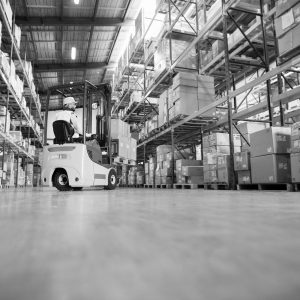What challenge(s) do our clients face?
The challenges faced by transportation managers have been amplified in recent years as their need has evolved beyond the traditional perspective of guaranteeing capacity while complying with cost and service level targets.
Transportation must now have a more strategic and active role in your value proposition, providing sustainability and resilience to the business while still complying with ever tighter targets for cost and service level.
- The service level challenge: Transportation is a relevant enabler of your business’ service level strategy, directly impacting important attributes such as lead time and on time delivery performance. Companies that excel in transportation typically count on suitable models and carriers with proper management;
- The cost challenge: Transportation is usually a relevant cost element within the supply chain, and thus is under continuous pressure to be minimized. Companies need to constantly seek unit cost reductions by (re)negotiating, opening tenders, refining the make or buy strategy, increasing productivity and increasing asset occupancy and turnover;
- The capacity challenge: Transportation capacity is finite and so transportation managers need to strike the perfect balance between adequate and flexible capacity. In markets with high growth rates or seasonality, lack of transportation is an important competitiveness issue. Some tactics regarding carrier contract management, make vs buy balance and integration with commercial policies can help to make this challenge more manageable.
- The sustainability challenge: Transportation has a significant impact on a company’s sustainability position, both from environmental (due to CO2 emission issues) and social (due to number of workers involved and communities affected by traffic) perspectives. This makes it an increasingly relevant topic for designing and operating transportation models.
- The last mile and omnichannel challenge: With B2C booming due to e-commerce growth, the last mile battleground means that transportation plays a key differentiating role. This goes beyond just delivering on time – it is now a representation of the brand face to face with the consumer, where providing accurate delivery information (tracking and traceability) and being active in solving delivery issues is key to satisfaction.
- The resilience challenge: In any logistics crisis, the ability to recover or put in place additional transportation capacity is key, such as with warehouse fires, carrier strikes or fuel shortages for example.
How do we help?
Integration helps companies identify and implement efficiency opportunities in transportation through a broad and deep approach, considering the unique reality of each business.
There are typically three situations where we support our clients to answer the following questions:
1. Map of Opportunities – what should you do to catch up with the best practices in the market?
- How competitive are the company’s costs?
- Where are the main opportunities? Unit costs or productivity?
- Does the transportation model enable the business strategy?
- Does the current service level provide what the market needs?
2. Revised Transportation Strategy and Model – how should the identified opportunities be addressed?
- Which transportation model should the company develop? Should there be a make or buy (or balanced) asset strategy?
- What kind of relationship and management should there be with carriers?
- What is the best strategy in terms of modal mix?
- How can productivity be increased?
- Which management model and structure best fits the model?
- How can technology support the transportation operation?
3. Implementation – how to make it happen and capture the expected benefits?
- What is the best strategy to implement the new model (new carriers, new tech apps, new contracts etc.) whilst guaranteeing business continuity?
- What is an appropriate contingency plan to mitigate the risk of the selected strategy?
What are the benefits?
- Reduce costs: by 5-20% (when Integration’s methodology is fully implemented)
- Improve service level: by increasing On Time delivery KPIs by 10pp – 30pp
- Reduce investment: by increasing productivity of your fleet and return on assets whilst postponing investments
- Meet strategic goals: by guaranteeing that your operations enable the organization to meet its short term needs and strategic objectives
- Improve management capabilities: by building internal competencies that drive continuous transportation improvement in the long run, also boosting the ability to manage future crises
- Strengthen supplier relationships: by developing long-term partnerships and enhanced contract management
- Increase ethical standards: by incorporating sustainability initiatives within the network
How does it work?
Our proven transportation methodology brings a comprehensive and deep perspective of the opportunities in your operation.
We connect deep transportation expertise with a detailed understanding of your operation to build feasible and implementable solutions alongside your team. The process by which we do this is detailed below.
During this journey Integration brings experience in transportation operations in different contexts, sectors and countries, guaranteeing the exchange of good practices and benchmarks, and incorporating change management and on the job training for your team from the beginning. This develops internal capabilities for future initiatives and reduces your reliance on us for the future.
SUCCESS STORIES
CHALLENGE
Transportation costs can make or break the profitability of a player in the cement industry. The low value added of the products only allow them to “travel” a certain distance whilst maintaining acceptable profitability levels. An efficient logistics network and transportation strategy (together with a close management to guarantee transportation efficiency) is key to win the game .
A cement manufacturer, with revenues surpassing $3 billion, needed to redesign its entire transportation strategy. After a period of cement scarcity in the Brazilian market (up to 2014), the balance between supply and demand shifted and pressures on logistics cost reduction (the second largest cost line of cement businesses) and service level (now an important differentiator) increased a lot. The challenge was multiplied by the size of the operation, which included more than 30 plants and 70 DCs across the country.
They asked Integration to help them implement these changes fast and capture results in the short-term.
APPROACH
As competition in the cement industry is typically regional we began by analyzing, through interviews, their customer’s expectations per region in order to define the service level which would drive their differential by audience.
We worked together with the client’s team to model the optimized network, generating efficiency while ensuring the organization met the service level requirements in each geography, considering site organization and their transportation strategy. Once the final model was agreed with leadership, we supported the business to implement the new network, coordinating the execution and removing roadblocks.
RESULT
- Logistic cost reduction of ~6%
- Reduced vehicle loading time by ~50% in the largest factory, increasing fleet turnover significantly
- Clear targets set for service level KPIs per region, based on customer needs
- Created a strong differential through record OTIF results, reduction in order lead time and new logistic services
- Internal capabilities developed for the team to drive continuous improvement
CHALLENGE
Our client, a mobile phone business, was in the process of implementing a commercial strategy turnaround in Brazil – focused on delivering an innovative online customer experience.
The new strategy aimed to reduce costs by increasing the conversion rate of online sales, thus enabling them to close a proportion of brick and mortar stores. The strategy was underpinned by the hypothesis that growth in online sales would be driven by providing one hour sim card delivery, and the client asked for Integration’s support in preparing them to enable this business model.
APPROACH
Integration supported the client with the design and implementation of a new operational model. The new model was based on an assessment of opportunities within 5 key pillars:
- inventory location strategy
- courier hiring model
- customer experience per process step
- control tower monitoring & visibility
- enabling technological platform.
In parallel, we defined the system requirements and supported supplier selection, to reach a viable proposal for how to achieve 1hr lead time from click to delivery.
RESULT
The new model delivered a new level of competitiveness to our client:
- 100% increase in super express deliveries within 5 months after implementation,
- Increase from <50% to 96% on time deliveries;
- 50% reduction in delivery unit cost
OUR INDUSTRY EXPERIENCE
Integration has a wide range of expertise in transportation, having completed projects for both contractors and logistics operators, for B2B and B2C businesses, inbound and outbound flows, heavy industry and consumer goods, physical retail and e-commerce, in a number of countries around the world. Some examples of the other industries we have served include:






